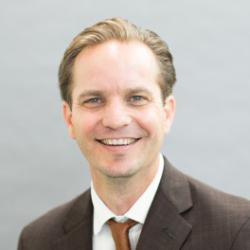Alvino-Mario Fantini, editor-in-chief of the The European Conservative, and Michael Severance, operations manager of Istituto Acton, co-wrote an op-ed for The Catholic World Report Are Pope Leo XIII and Pope Saint John Paul II “feeling the Bern”? The article was published yesterday as a concluding reflection on Acton’s April 20 Rome conference “Freedom with Justice: Rerum Novarum and the New Things of Our Time“.
The op-ed summarizes some of the main moral theological and anthropological points expressed last Wednesday — especially those made by the theologian of the papal household Fr. Wojciech Giertych, OP. Fr. Giertych reminded everyone present that Pope Leo XIII, the first pope in centuries not to have temporal power over the Papal States, did not have a state-centric approach to anthropology. Pope Leo, said Giertych, “insisted that by nature man precedes the state – and independently of it he has the right to provide for his own needs (RN, 7).”
The article also circles back to the recent Vatican speech by Senator Bernie Sanders, as he attempted to ‘socialize’ Catholic social teaching when speaking in the context of John Paul II’s Centesimus Annus, the very same document that criticized socialism for its grave “anthropological error” and which is arguably the most free-market friendly encyclical written to date. Senator Sanders, the 35-year veteran statesman “steeped in government work and imbued with the bureaucratic spirit”, spoke in admiration of the moral sensitivity of John Paul II and even of the present Pope Francis, but in his conclusion “hammered away with his ideas about class struggle, increasing global poverty, and the general moral imperative to reduce ‘vast inequalities of power and wealth [that] lead to marginalization of the poor and the powerless.’”
“In Sander’s view, this amounts to state interventions everywhere, especially where he believes the market has either failed or simply not lived up to his utopian expectations,” the article reads.
Toward the end of the article we read why it would be even more difficult for Sanders to put a socialist spin on Leo XIII’s Rerum Novarum, which was published as robust defense of private property, individual responsibility and subsidiarity right when Marxism rose to immense popularity in Eastern Europe and while the rival Industrial Revolution faced its fair share of social and moral challenges:
Although Pope Leo XIII criticized some of the inhumane working conditions that began to appear during the Industrial Revolution, he also robustly defended the importance of private property rights, the importance of individual creativity to find solutions to big social problems, and the centrality of the nuclear family. More importantly, unlike Bernie Sanders, Leo XIII’s first instinct as a moral theologian was not to promote a ‘nanny state’ to pamper all individuals and dress all societal wounds. Rather, he argued that individuals, families, and society must all be given plenty of room so that relationships may operate and develop among them, inspired by God, and so that they may all be given a chance to respond to their own challenges – before assuming the state should get involved.
Go here to read the rest of the Catholic World Report article. You can follow the Acton Rome conference conversation on social media via the hash tag #125onFreedom.


